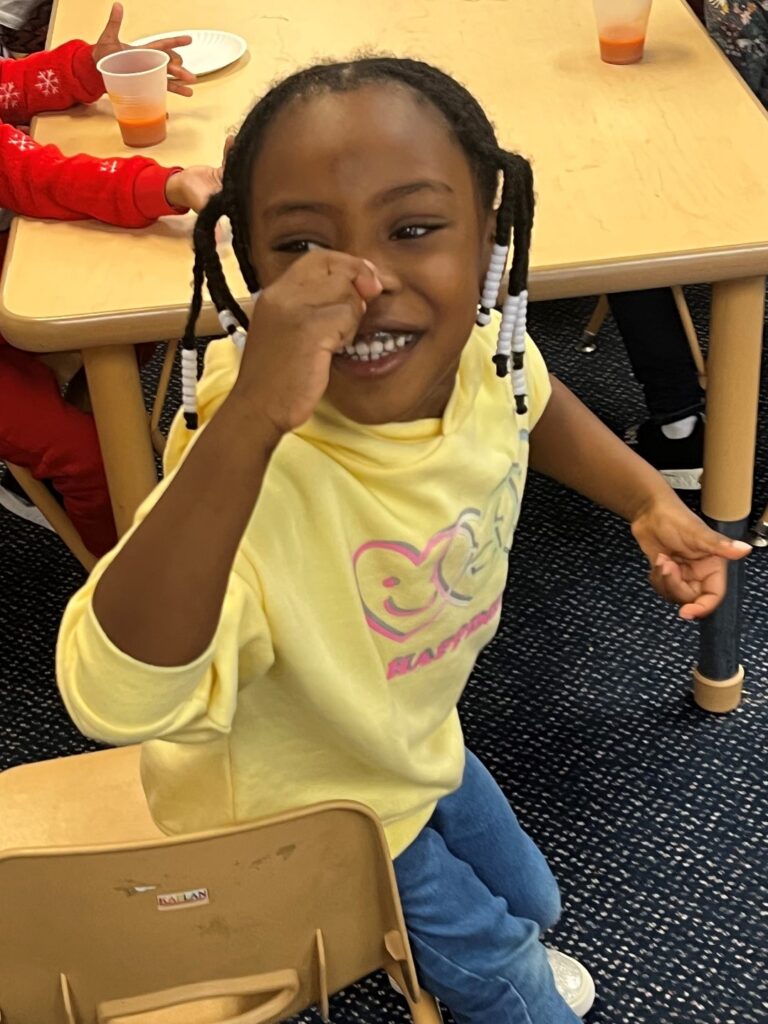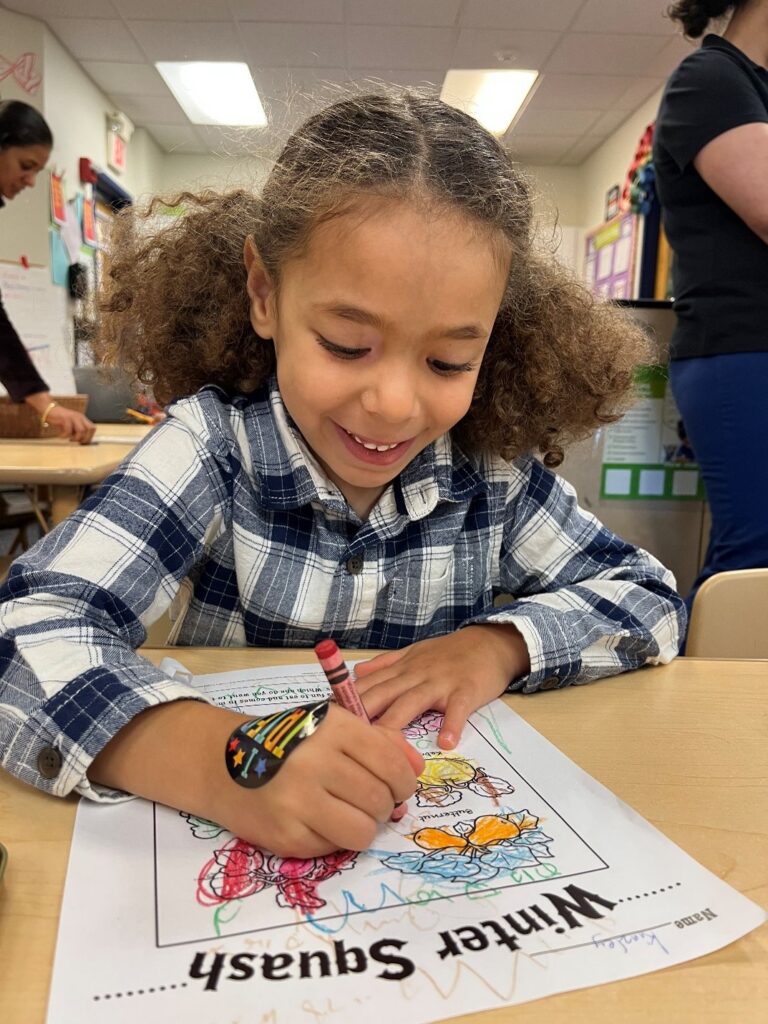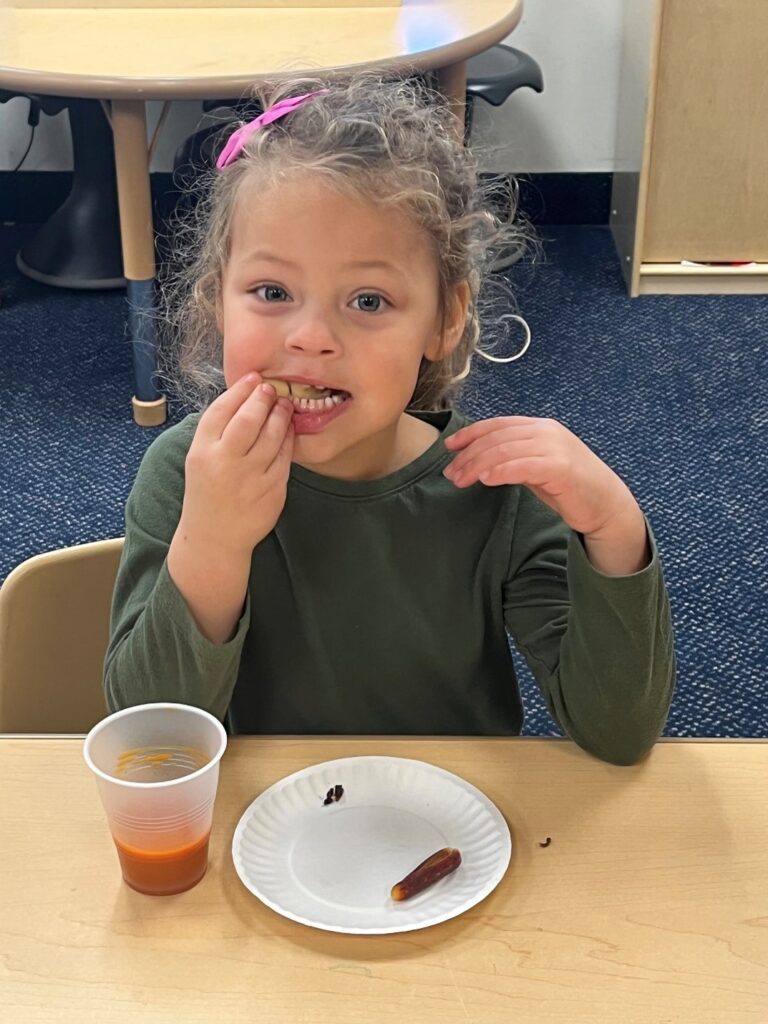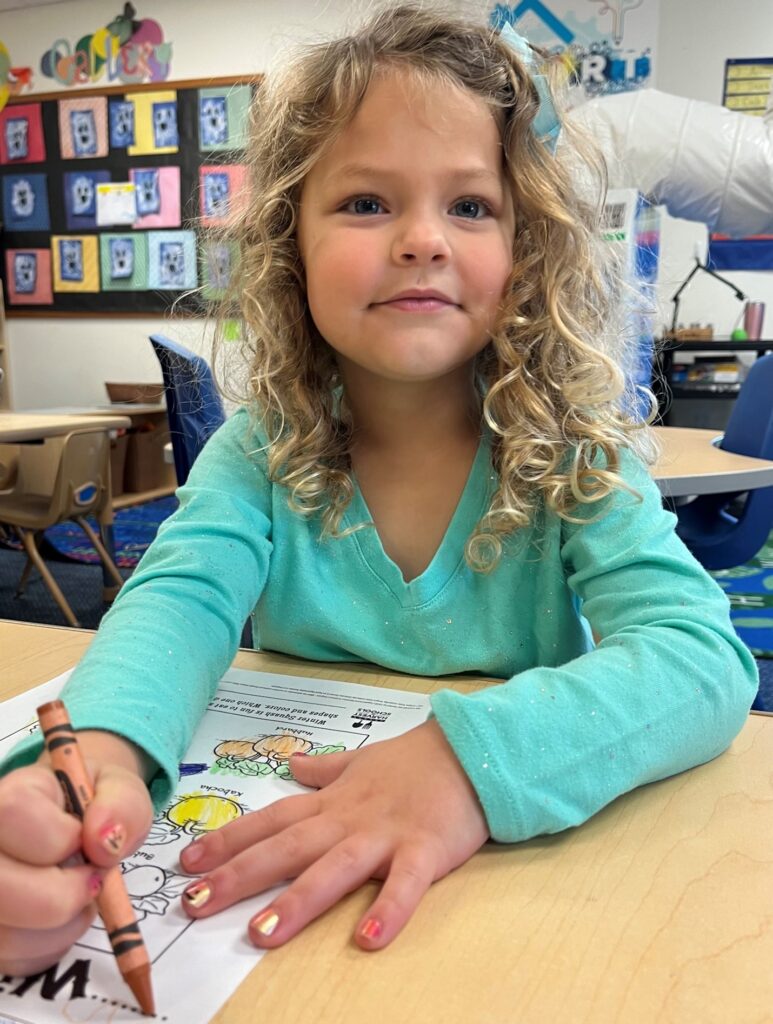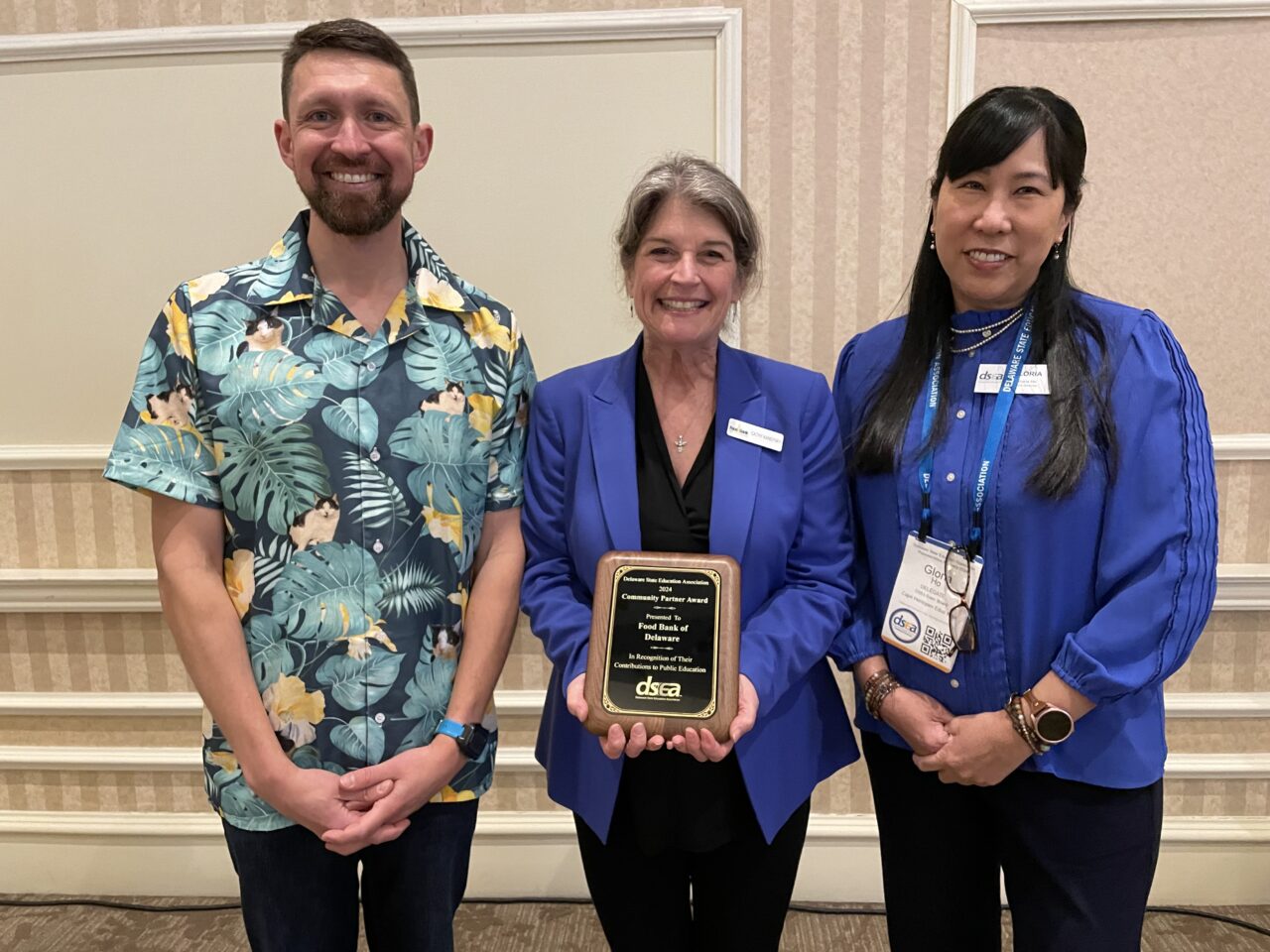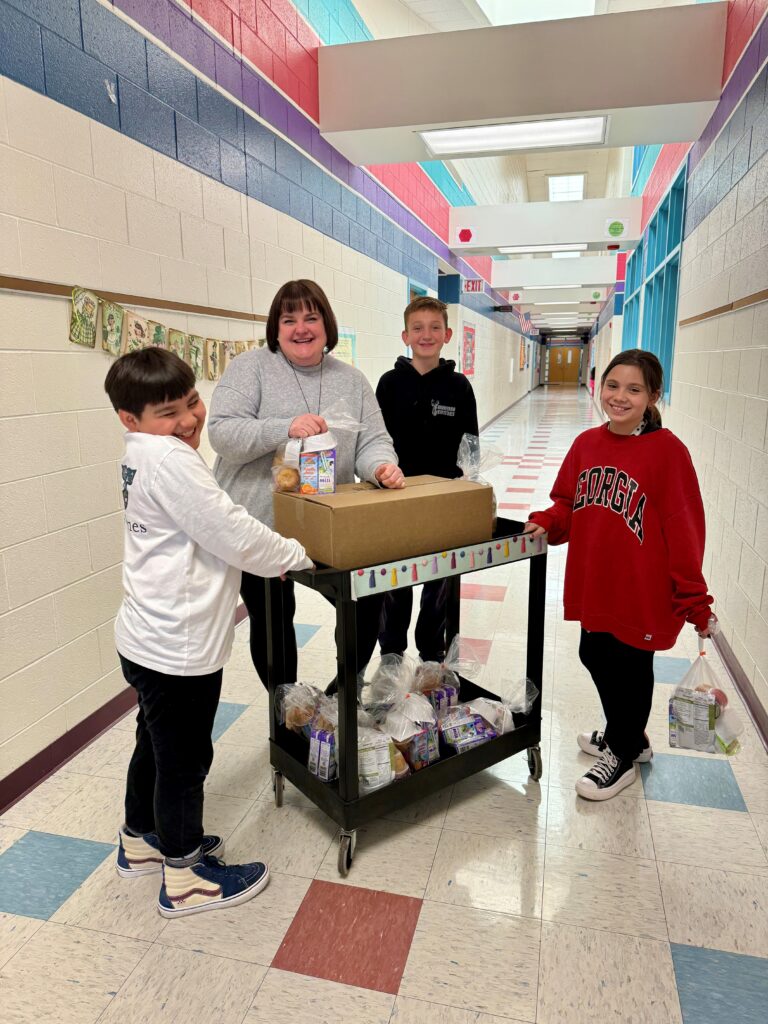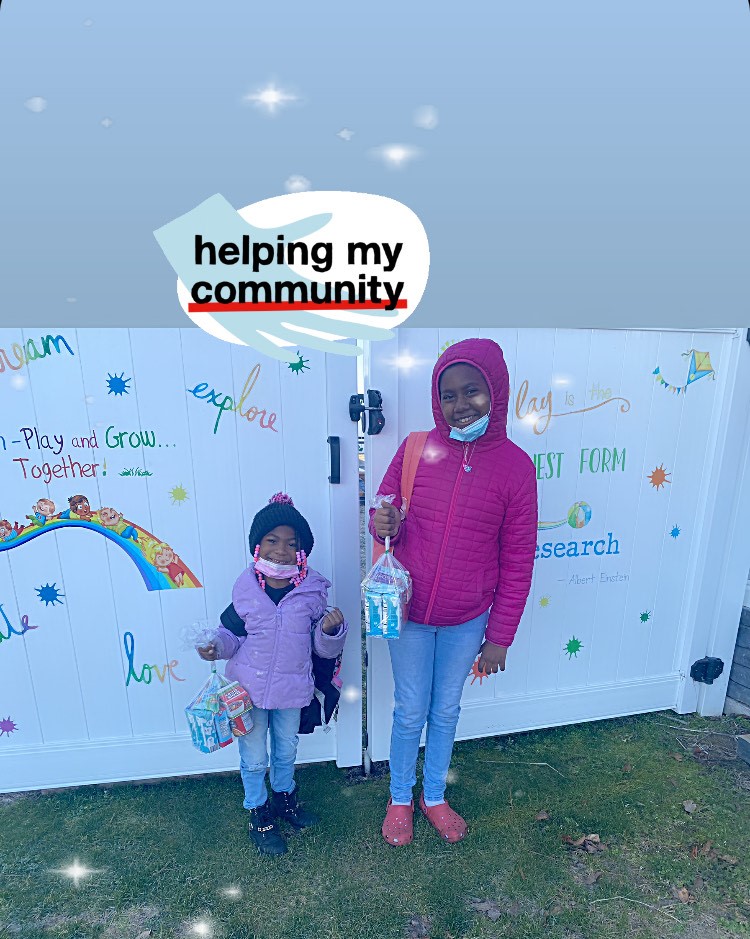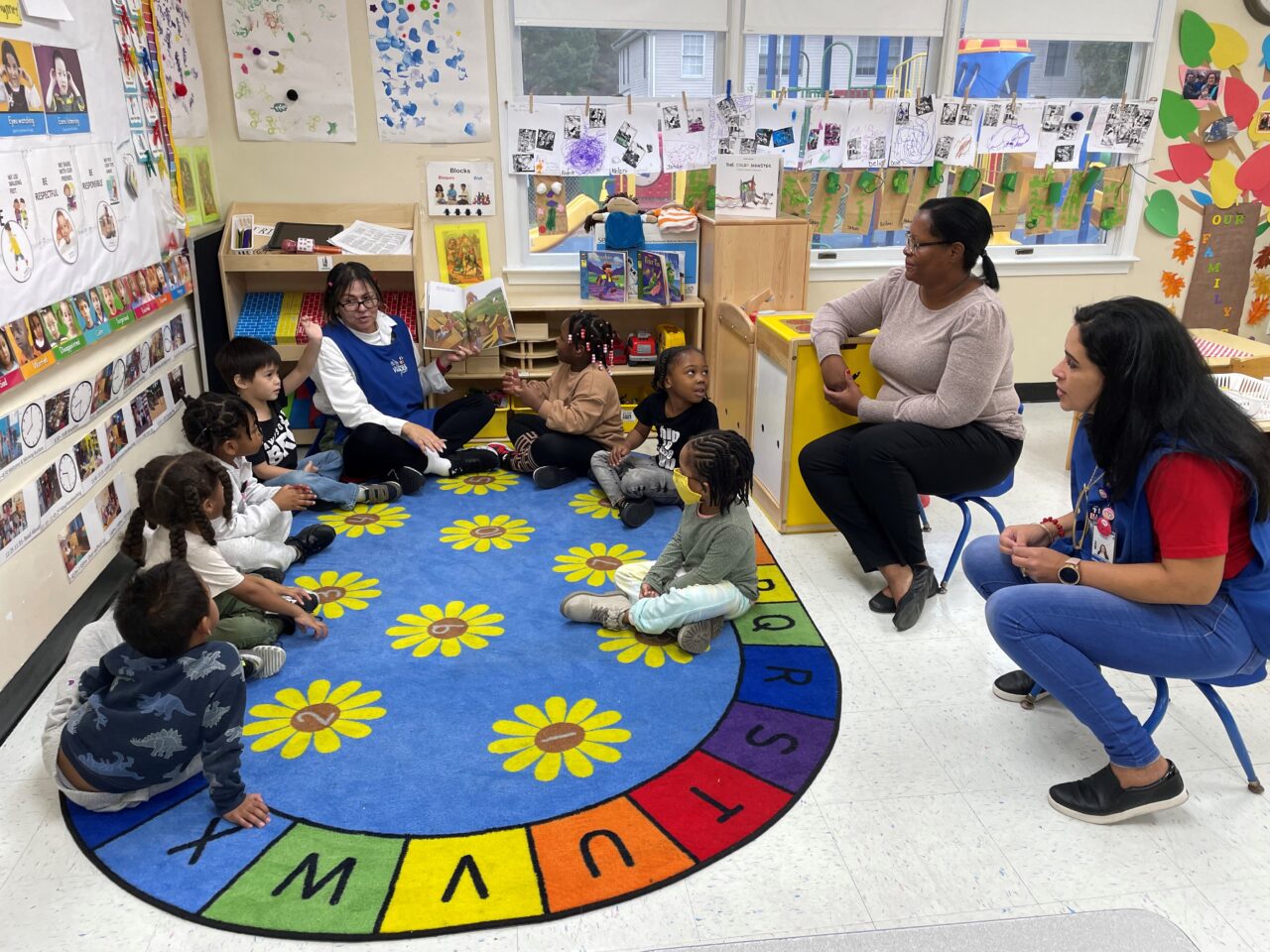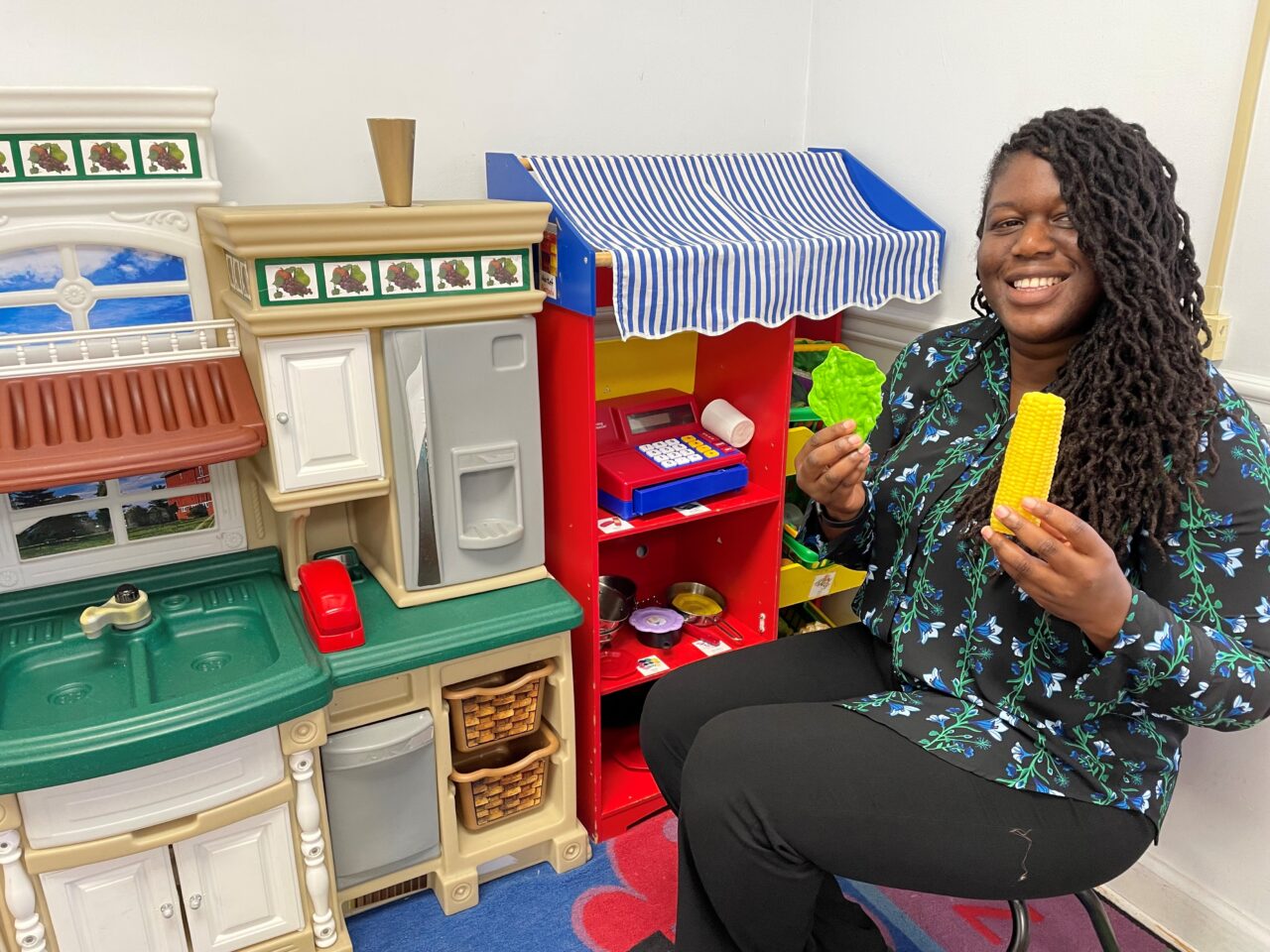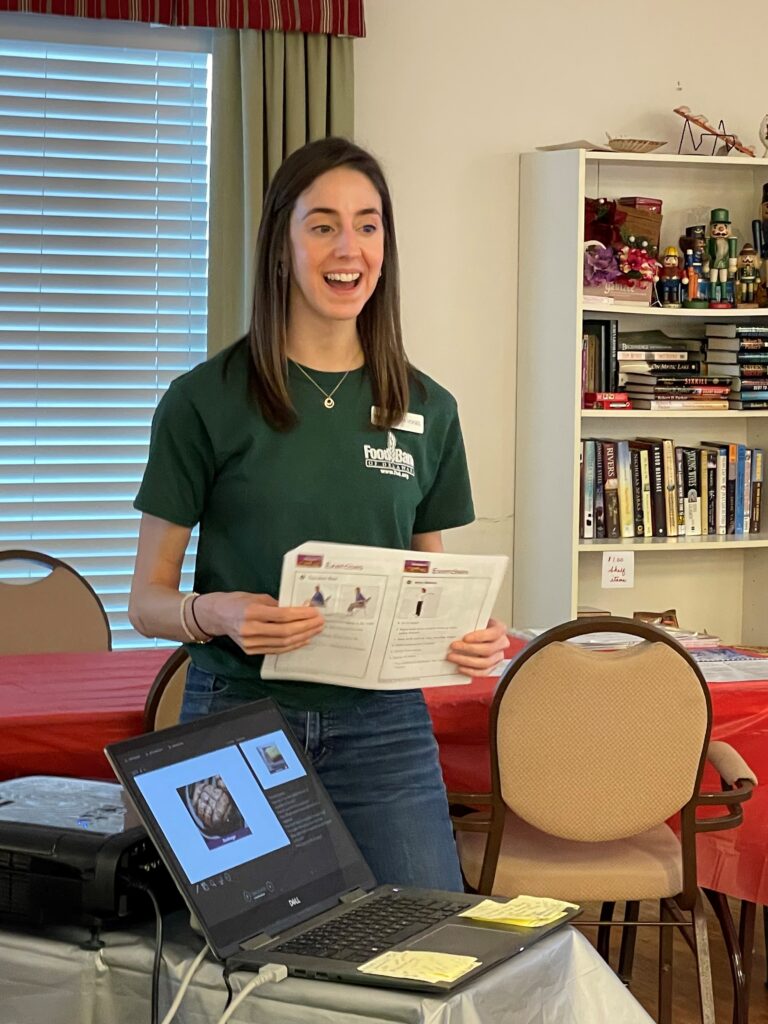FBD partnering with Tutor Time
December 14, 2022
By Jaime Sherman, MS, LDN Community Nutrition Educator – SNAP Ed
Community Nutrition Educators at the Food Bank of Delaware are conducting The Healthy Childhood Project (HCP) curriculum at Tutor Time Childcare in Newark. In addition to this series of classes, the Center Director at Tutor Time reached out in hopes of returning to their outreach efforts of pre-Covid times. Thanks to their Thanksgiving Food Drive, staff and families collected (in just about two weeks) 201 pounds of food for our neighbors in need!
The goal of the HCP curriculum is to introduce children between the ages of two and four to a variety of fruits and vegetables. While it is important to introduce children to healthy foods early by exploring the item using their senses, the curriculum also includes a physical activity, crafts and coloring pages, and a story book. Starting good dietary habits at a young age can put the child on a path of good nutrition for their whole life!
This curriculum can be conducted in as little as eight weeks or as many as 13 weeks. Thus far, children at Tutor Time have tasted (and explored) Apples, Asparagus, Beans, Berries, Squash, Carrots, Cauliflower, Melon, and Winter Root Vegetables like parsnips and turnips.
When exploring the items, children are asked to describe the size, texture, color and to smell the item. The students equated parsnips to looking like a white carrot and both parsnips and turnips to smelling like onions. They were then pleasantly surprised to enjoy the taste of crispy root vegetable chips. When examining cantaloupes and honeydew melons, students were asked to predict (and compare) the color and number of seeds inside. They also compared each melon to size and texture. During the carrot lesson, students got to try yellow, purple and orange baby carrots along with carrot juice. They did not enjoy the carrot juice, but at least they tried it!
On December 1st, 2022, when discussing the variety of apples, colors, sizes, and how they grow, they were asked to name other fruit that grows on trees. Then, they eagerly listened to the story Apple Farmer Annie by Monica Wellington and took turns counting the number of apples displayed in various ways throughout the book: by color, in baskets, and on the apple trees in the orchard. After learning what an apple orchard was, they saw that the apples picked can be made into cakes, pies, cider, and more! For the next activity, the students had the opportunity to help make applesauce by mashing softened, diced apples, pouring cinnamon, and mixing the mashed apples. After trying the applesauce, they did exercises, which included jumping jacks and arm circles.
A survey was sent home with the children asking their parents/guardians about any changed eating habits such as: talking about these lessons at home, showing more interest in trying these particular foods, eating more fruit and vegetables at home, showing more interest in helping to prepare food at home, their favorite part of the classes, and whether or not they have made the recipes from the parent newsletters sent home after each lesson. Thus far, the responses have been positive! One parent stated, “Noticed (my child) speaking more about vegetables and willing to at least taste veggies.”
The Healthy Childhood Project can make significant changes in a child’s dietary pattern starting at a young age. A dietary change that is started at a young age can carry on into adolescence and adulthood. For example, introducing kids to squash now might be a food that they continue to incorporate as they age.
If you know of a childcare location that might be interested in this program, or for more information about this project, contact Jaime Sherman (New Castle County) at jsherman@fbd.org or Alicia Vogel (Kent and Sussex Counties) at avogel@fbd.org.


